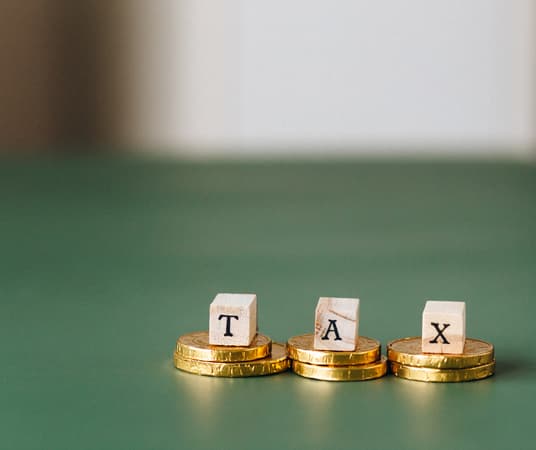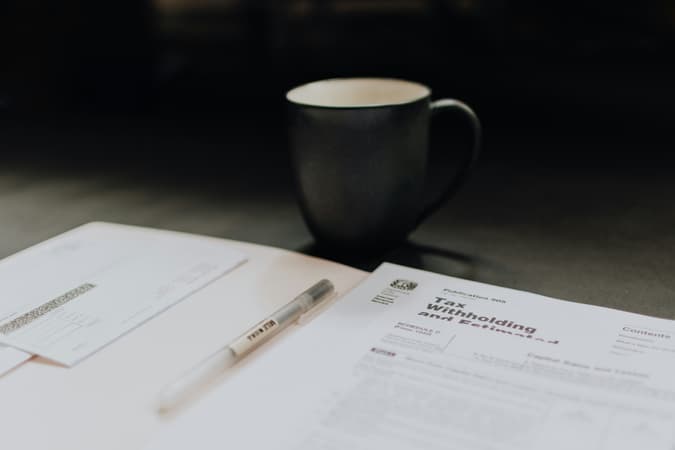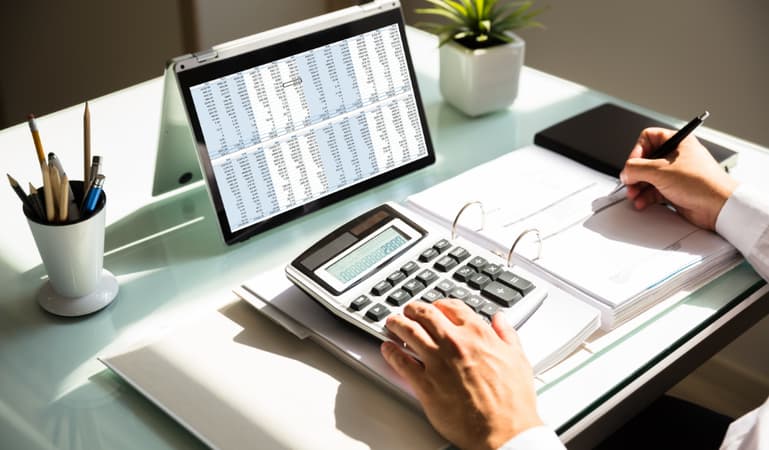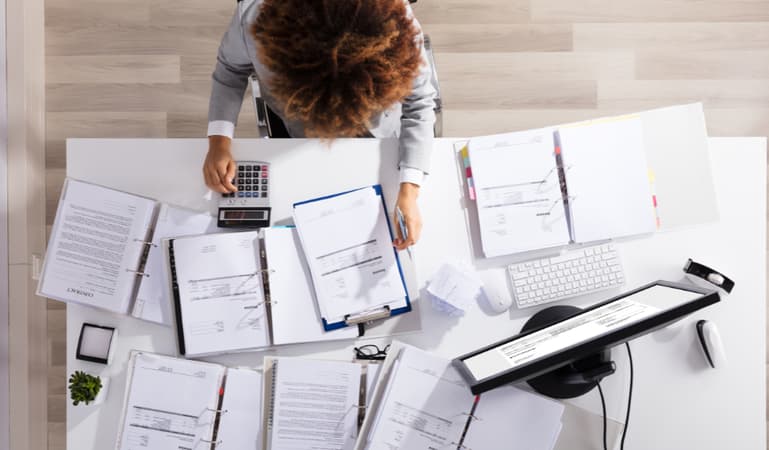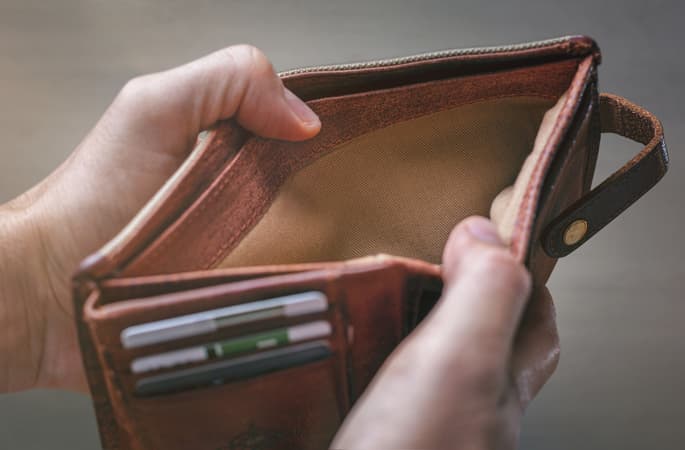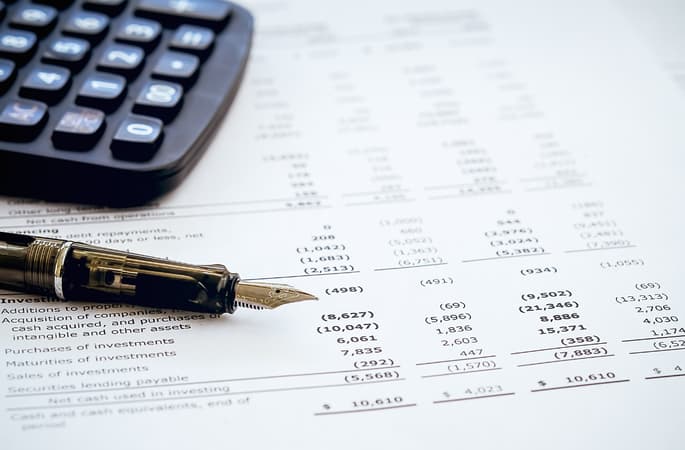Jump to a section
As a small business owner, it is important to understand what Value Added Tax (VAT) exemption is and when it applies. VAT exemption is a tax incentive that allows businesses to avoid charging customers the standard VAT rate on goods and services. In some cases, businesses are even allowed to reclaim the tax they have already paid. This guide will help you gain a better understanding of who is eligible for VAT exemption, as well as how to claim it.
What is VAT?
Value Added Tax (VAT) is a type of indirect tax which businesses must pay to the government on goods and services supplied. It applies to every stage of the supply chain from manufacture all the way to the consumer. If a product or service is subject to VAT, it means that the standard VAT rate applies unless an exemption or zero-rating applies.
How does VAT work?
VAT works by adding a percentage of the item's price onto the cost for each stage in the process, giving rise to its name. By collecting taxes at many stages along the production chain, it reduces evasion due to under-the-table dealings and is relatively difficult to skirt around or avoid. The funds collected as VAT goes on to be used by governments for various public expenses like infrastructure improvements, healthcare, and education.
What is VAT exemption?
VAT exemption is an important, though complicated and often misunderstood, concept. In essence, it allows certain items or services to be exempt from VAT, meaning businesses do not have to charge VAT on these sales. This benefits both consumers and businesses by reducing costs and making certain essential goods and services more affordable.
What is exempt from VAT?
To qualify for VAT exemption, goods and services must fall under one of the following categories.
VAT exempt items
There’s a wide range of activities, services, and items that are entirely exempt from VAT. The VAT exempt list includes:
-
Education and training from eligible schools, colleges, or universities.
-
Charity donations and events.
-
Health services.
-
Insurance, financial services, and investment.
-
Royal Mail postal services.
-
Sports, leisure, and cultural activities.
Zero-rated VAT
Certain items, deemed too important to impose taxes on, are zero-rated, making them accessible and affordable for buyers. These include:
-
Most food, including non-alcoholic drinks such as bread, vegetables, fruits, and cereals.
-
Children’s clothing and footwear.
-
Books, newspapers, and magazines (including digital versions).
-
Pharmaceutical products used to treat humans or animals, such as medicines and first aid supplies.
-
Passenger transport services by bus, train, or boat that originate in the UK.
-
Domestic fuel and power.
Reduced rate VAT items
Some items are set at a reduced rate of 5% including:
-
Mobility aids like wheelchairs or scooters.
-
Installations helping to achieve energy savings.
-
Admission fees to certain cultural events.
-
Sports activities for children under 17 years old.
-
Repairs to listed buildings and national monuments.
-
Children’s car seats.
Discounts and gifts
If you are looking to reward customers with discounts or free gifts, then understanding the VAT regulations is essential! Depending on what type of promotion you're offering – either a discounted item or complimentary gift alongside an order - there will be different rules as to whether standard taxation applies.
For full information on the rules, GOV.UK has all the information and know-how needed to make sure your business stays compliant.
VAT exempt vs zero-rated items
VAT exemption and zero-rating are often confused, but they are not the same.
-
VAT exempt items: These are completely outside the VAT system, meaning VAT is neither charged nor reclaimable. Businesses selling only VAT-exempt goods or services do not need to register for VAT.
-
Zero-rated items: These are taxable at a 0% VAT rate, meaning businesses do not charge VAT but can still reclaim VAT on related expenses.
Understanding the difference is crucial for businesses because it determines whether they can reclaim VAT on purchases. Sellers of zero-rated items can reclaim VAT on business expenses, whereas sellers of exempt items cannot. This distinction directly impacts cash flow and tax liabilities.
What businesses are VAT exempt?
Some businesses qualify for VAT exemption, meaning they do not need to register for VAT or charge it on sales. Below are some key categories:
VAT exempt businesses
Businesses that only sell VAT-exempt goods or services do not need to register for VAT. Examples include:
-
Healthcare providers.
-
Educational institutions.
-
Financial service providers.
-
Insurance companies.
Partially exempt businesses
Some businesses sell a mix of taxable and exempt goods or services. These are known as partially exempt businesses. If your taxable turnover is below £85,000, you do not need to register for VAT, but you can only reclaim VAT on certain business expenses.
Charities
Charity organisations are usually fully exempt from paying VAT on the majority of their activities, including donations made by non-business owners and those related to healthcare services. Charities may also be eligible to reclaim any tax paid as part of their fundraising efforts. You can find more information on VAT for charities on the GOV.UK website.
Business selling zero-rated VAT items
Businesses in this category must still register with HM Revenue & Customs (HMRC), but they don't have to charge customers any taxes while selling zero-rated items like food, books or pharmaceuticals. However, these businesses will still have to account for all sales using invoices or other forms of documentation so that HMRC is aware of revenue generated through such activities.
Bottom line
Understanding VAT exemption, zero-rated VAT, and reduced VAT rates is crucial for businesses to remain compliant and manage their tax obligations effectively. Whether your business sells VAT-exempt services, zero-rated products, or a combination of both, knowing your VAT status can help you optimise cash flow and avoid potential tax issues. If you’re unsure about your VAT responsibilities, it’s always best to consult with a tax advisor or refer to the official guidance on VAT exemption and partial exemption on the GOV.UK website.
Frequently Asked Questions
Is insurance VAT exempt?
In most cases, yes. Insurance is VAT exempt, meaning VAT is not charged on premiums or fees. However, some fees related to insurance services may still be subject to VAT, so it's best to check with HMRC or your provider.
Are charitable donations VAT exempt or zero-rated?
Charitable donations are usually VAT exempt. However, if a charity provides goods or services in return for a donation, different VAT rules may apply. Always check with HMRC for specific cases.
Do you pay VAT on business rates?
Generally, no. Business rates are outside the scope of VAT, meaning VAT is not applicable. However, if a property is rented out commercially, the landlord may be required to account for applicable taxes.
Is postage VAT exempt?
Royal Mail postal services are VAT exempt, but some courier services charge VAT. Always check your provider’s VAT policy.
What is the difference between zero-rated and exempt?
-
Zero-rated items have a VAT rate of 0%, allowing businesses to reclaim VAT on expenses.
-
Exempt items are outside VAT regulations, and businesses cannot reclaim VAT on related costs.
Do you pay VAT on congestion charges?
No, London’s Congestion Charge is outside the scope of VAT. However, future changes to VAT rules may affect this.
Can I apply for VAT Exemption?
Yes, you can apply for VAT exemption if your business meets the eligibility criteria. Check with HMRC or a tax advisor to understand the process and ensure compliance.
This does not constitute advice if you want to understand your business tax liability in detail you should speak to your accountant.



